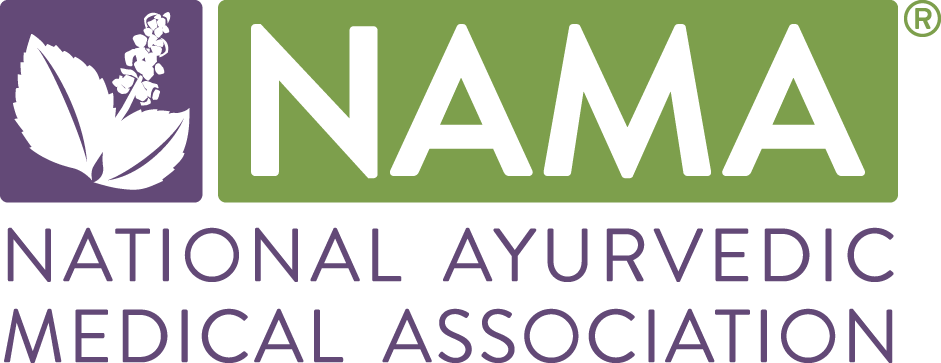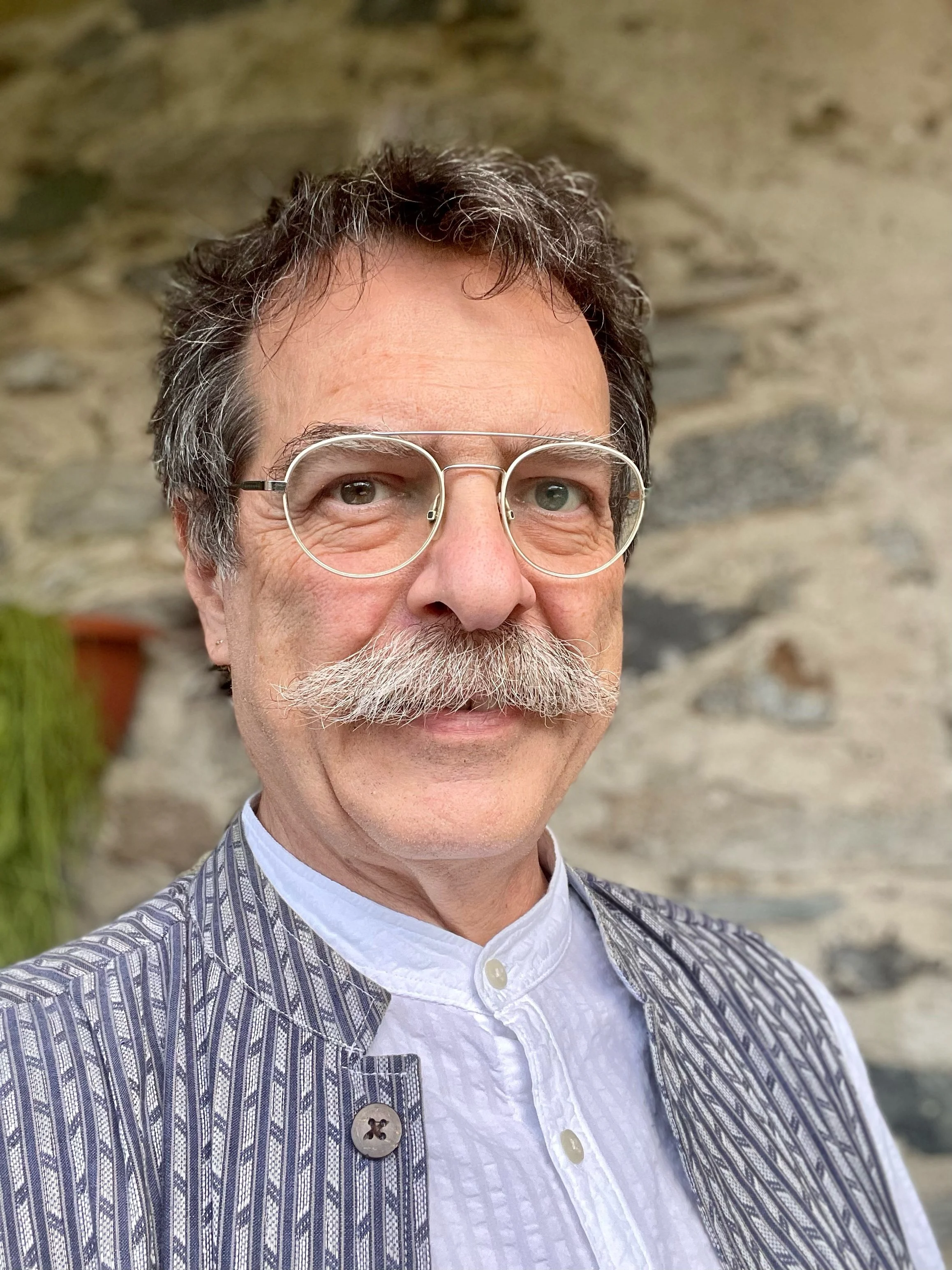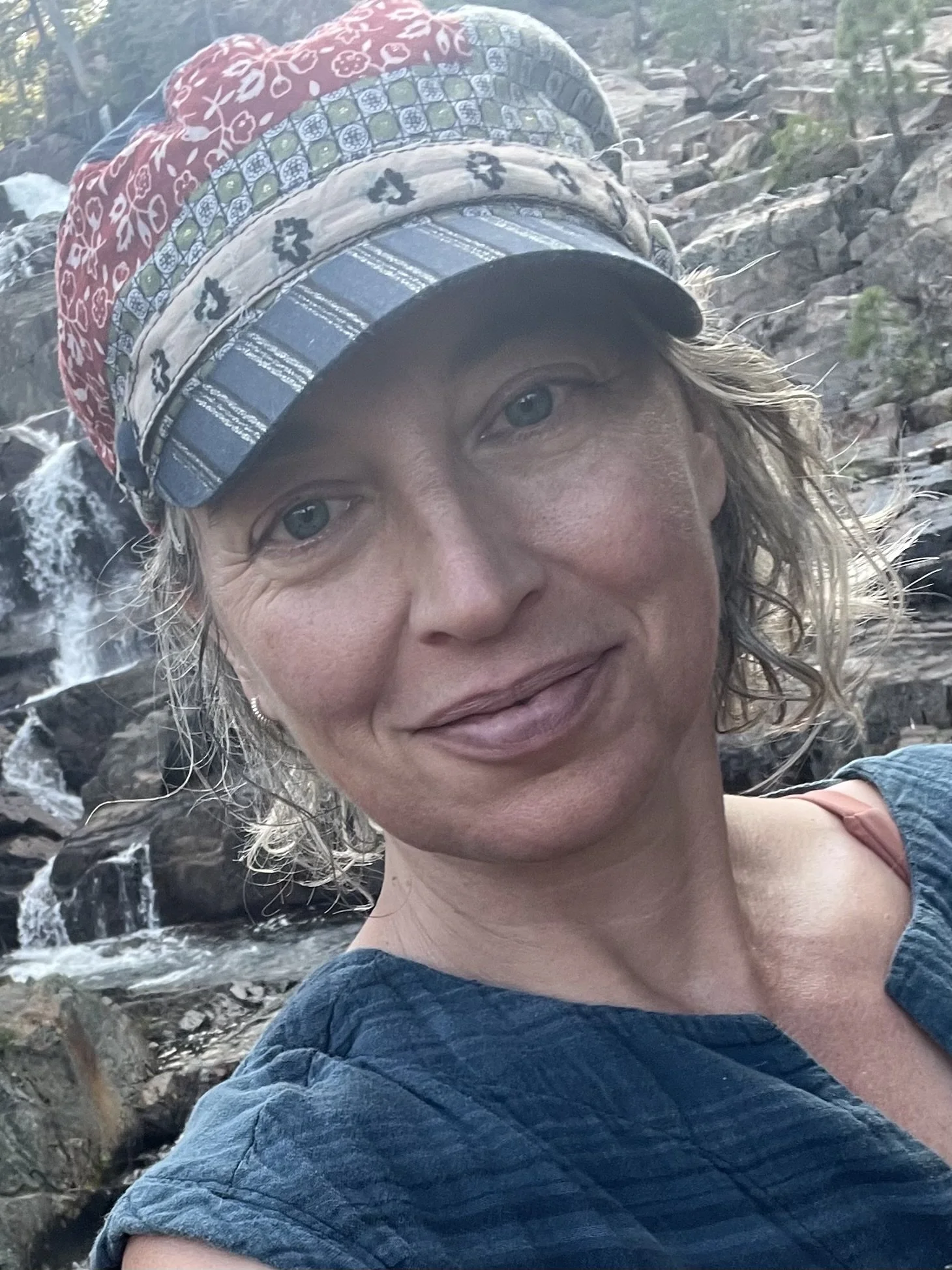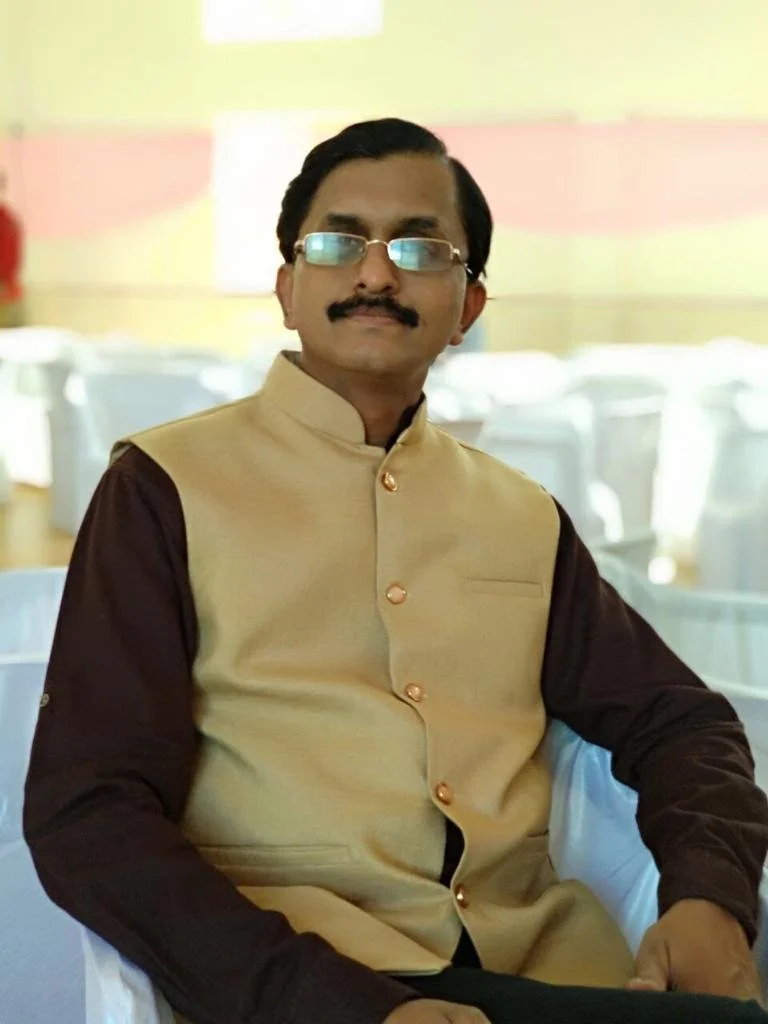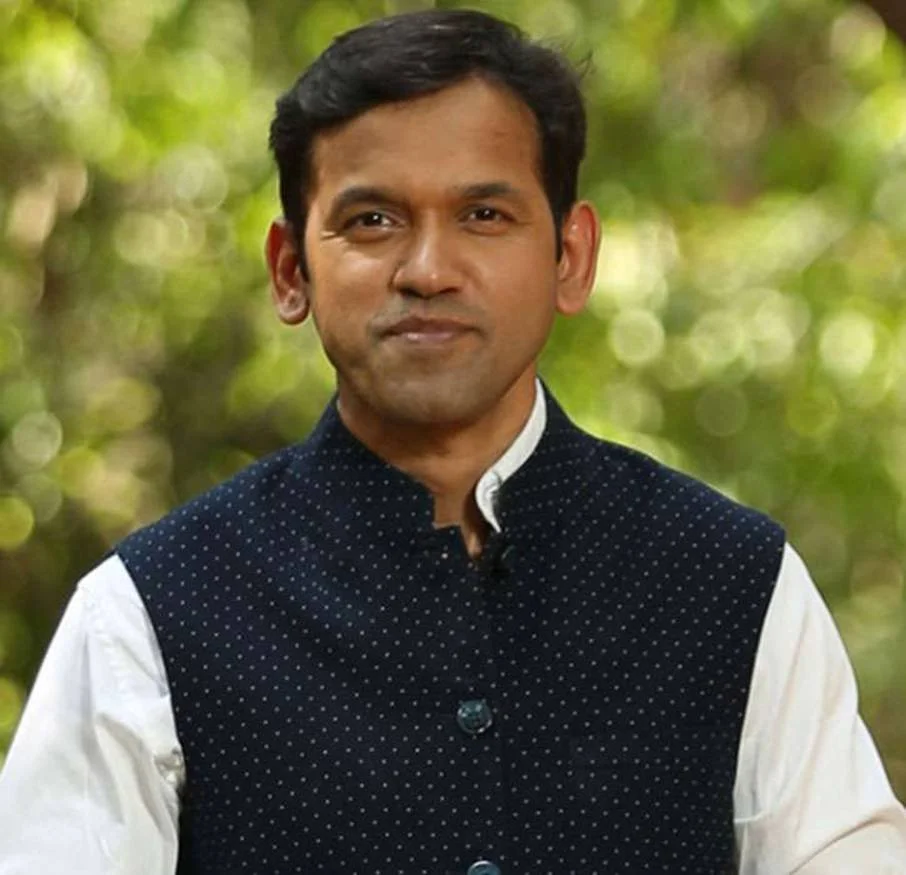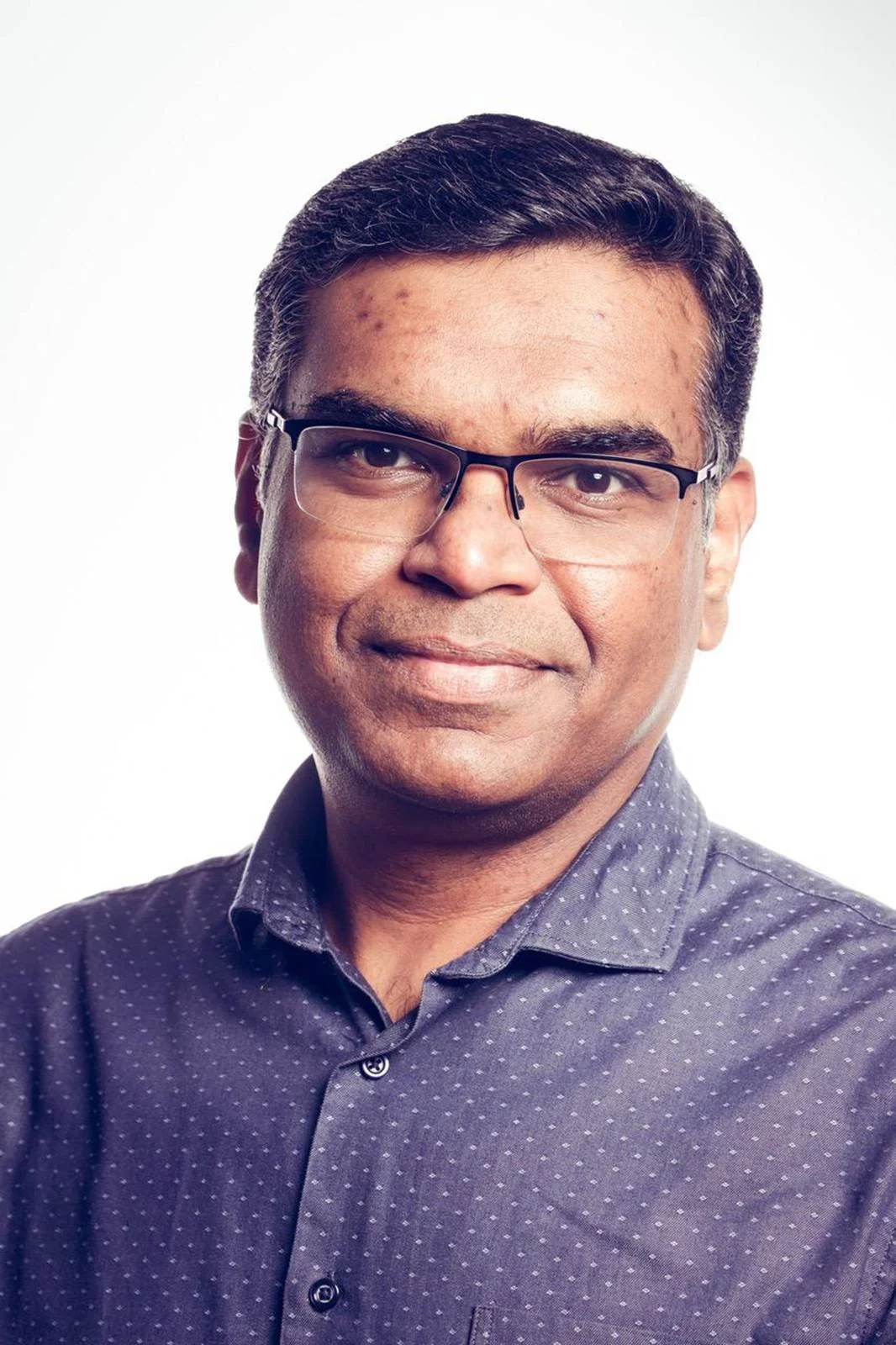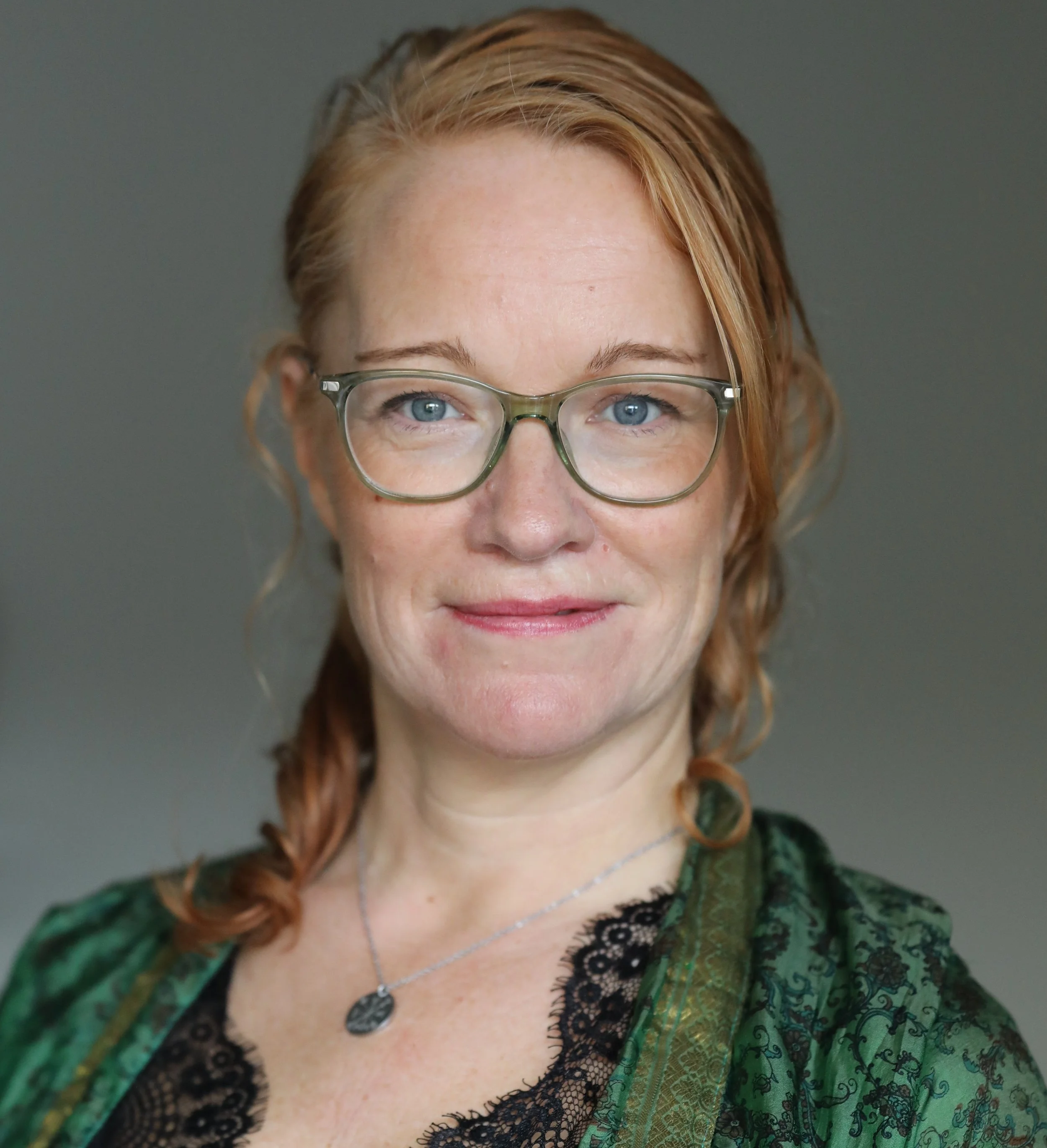Registration for the 2025 Global Ayurveda Online Summit is now open!
_______________________________________________________________________________________________
Join us for the transformative two-day virtual event!
2025 Global Ayurveda Online Summit: Ayurveda and Integrative Medicine — Healing Wisdom for Whole-Person Health
October 11–12, 2025
8 AM to 5 PM PT/ 11 AM - 8 PM ET
This inspiring summit brings together a vibrant community of health-conscious individuals, wellness professionals, doctors, Ayurveda practitioners, researchers, and yoga enthusiasts—all united by a passion for healing and innovation. Explore the powerful synergy of ancient Ayurvedic wisdom and modern integrative medicine in a collaborative space designed to deepen our understanding of Ayurveda’s evolving role in contemporary healthcare.
Through dynamic talks, expert panels, and meaningful dialogue discover how these time-tested and forward-thinking approaches are reshaping healthcare, improving clinical outcomes, and promoting holistic well-being. Whether you're a seasoned practitioner or simply curious about whole-person healing, this summit invites you to be part of a global movement transforming patient care and personal wellness for all.
Pricing: $150 ~ members | $200 ~ non-members
NAMA professional members can earn up to 16 PACE credits
Refund and Cancellation Policy
All registrations are non-refundable. If you are unable to attend, you may request access to the session recordings.
2025 Global Ayurveda Online Summit Schedule
Explore the full program! View the Summit schedule to see session times, speakers, and topics. Plan ahead and make the most of your experience.
Become a 2025 Global Ayurveda Online Summit Sponsor TODAY!
Showcase your support by sponsoring the 2025 Global Ayurveda Online Summit!
You can choose to sponsor a single day or the entire two-day event. Explore the details below.
2025 Global Ayurveda Online Summit Speakers:
-
Dr. Welch has been a lifelong student of life and medicine. She has practiced Āyurveda, is licensed as a Doctor of Oriental Medicine, and authored Balance Your Hormones, Balance Your Life: Achieving Optimal Health and Wellness Through Ayurveda, Chinese Medicine and Western Science and, The Four Qualities of Effective Physicians: Practical Ayurvedic Wisdom for Modern Physicians. She is also one of the founders of Satsangam.net. Dr. Welch has lectured internationally on Oriental medicine and Āyurveda, exploring how Eastern medicine applies to Women’s Health, and today's reality in general. You can find her courses and many free resources on www.DrClaudiaWelch.com and www.Satsangam.net.
-
One of Ayurveda’s great strengths is its attention to context—understanding an individual within the wholeness of life rather than reducing them to parts. This summit offers a parallel macrocosm: a global gathering where Ayurveda is practiced and interpreted across cultures. Dr. Claudia Welch explores how context—neurological, cultural, global—is medicine, and how widening perspective can restore balance,integration, and integrity in whole-person health and Ayurveda education today.
-
Dr. Antonio Īśvara Morandi is a medical doctor, neurologist, and leading expert in Ayurveda. He is the President and Director of Ayurvedic Point, a certified institute and school of Ayurveda which he founded in 2001. Dr. Morandi has studied Ayurveda extensively since 1994 in both Italy and India. He holds a Diploma of Āyurveda Vaidya (Pune, 2000), a specialization in Panchakarma (Thrissur, 2006), and was honored with the title of Āyurveda Āchārya in 2003. He has co-authored several award-winning clinical publications (ECIM 2019, Holzschuh 2020) and received the prestigious IASTAM-ZANDU Award for his contributions to Ayurvedic research in 2017. Dr. Morandi also serves as President of the Italian Scientific Society of Ayurvedic Medicine (SSIMA), is a WHO expert in working groups on Ayurveda practice, training, and terminology, an Adjunct Professor at DMIHER University in Nagpur, India, and a lecturer at the University of Milan’s Faculty of Medicine. He is a member of the Commission on Non-Conventional Medicine of the Medical Board of Milan and serves as both an author and editorial board member for several scientific journals.
-
Collaborative Medicine & Science (CoMS) is a practical bridge between Ayurveda and biomedicine. Rather than merely translating Ayurvedic concepts into modern measures, CoMS reads modern evidence through Ayurvedic lenses to uncover patterns and meanings otherwise missed. Ayurveda’s inclusive view helps reinterpret datasets, stratify patients, and generate testable predictions that biomedicine can measure. In neurology, this approach improves early signal detection, responder identification, and adjunct treatment design, while keeping each tradition’s integrity while accelerating discovery.
-
Dr. Abhay has been a Consulting Ayurvedic Physician at Ayushree Ayurvedic Hospital and Research Centre in Nashik since 1994. With 30+ years of clinical experience, he was appointed to upgrade the AYUSH Wellness Centre at Rashtrapati Bhavan. He has received the Panchakarma Bhishak Award and the Health Stalwart Award 2024. Dr. Abhay is a resource person at many seminars and has completed an EMR project on Diabetic Nephropathy. He has published numerous papers and articles and holds a National Design Patent for a portable oil warmer. He is also pursuing a patent for his research on Diabetic Nephropathy. Dr. Abhay is a member of various committees at MUHS and has been involved in research since college. He is a visiting Professor and a Senate Member at MUHS. He oversees Ayurved Seva Sangh Nashik, which runs an Ayurveda College and a 100-bed hospital. He manages Aushadhi Bhavan, an Ayurvedic medicine manufacturing institute, and Ayurved Patrika, a scientific journal. He has initiated commercial clinical trials in Ayurveda and is a member of the Scientific Body of Pharmacopoeia Commission of Indian Medicine & Homeopathy. Dr. Abhay holds a BAMS and MD in Ayurveda and is pursuing a PhD in Public Health. He has also studied Sanskrit and has been a keynote speaker at many conferences. He has travelled internationally to conduct seminars and workshops and has published over 1500 articles and three books on Ayurveda. He has also released audio CDs on Garbhasanskar and is active in social organizations as a Rotarian.
-
Descriptions of organs in classical Ayurvedic texts are brief, presenting challenges for practitioners dealing with modern organ diseases like chronic kidney disease (CKD). Closer analysis of these texts, however, reveals that kidneys (Vrukka) are discussed in terms of anatomy, embryology, and their role as vital organs (Basti Marma), relevant to urinary diseases and metabolic functions. Ayurveda offers detailed explanations of urine formation and kidney physiology, which parallel concepts in modern medicine such as glomerular filtration. A clinical study divided 30 stage III diabetic nephropathy patients into two groups: one received standard care, and the other received both standard care and an Ayurvedic Treatment Regimen (ATR). The ATR was based on Ayurvedic diagnosis (Nija Basti Marbhighata Janya Udara) and included five medications plus Madhutailik basti therapy. Results showed that the ATR group experienced better e-GFR preservation, reduced albumin-creatinine ratio, and improved quality of life compared to controls. Thus, adding ATR to standard care may provide reno-protective effects and slow CKD progression, highlighting Ayurveda's potential utility in managing kidney diseases.
-
Angela Miller Woo is a family physician who teaches clinically in Family Community Medicine at UCSF/SF General Hospital since 2001. She also works in San Francisco DPH as a primary care physician and special projects including the Primary Care Perinatal Partnership and Congenital Syphilis Prevention Task Force. The presentation that follows is not representative of those above organizations, nor has funding or gifts been received from any entity. Her interest in Ayurveda began in 1998 while completing medical school at the University of Michigan during a complementary medicine rotation. She combined her background from rural Upper Peninsula of Michigan and generational love of plant medicine with the opportunity to study with one of Dr. Vasant Lad’s formal herbal pharmacists as an herbal medicine making apprentice. She traveled to India and immersed herself with Ayurveda at a teaching hospital for a time in 2005, and after raising a couple of great kids she is happily returning to study. She completed the one year AHC program at Mount Madonna and continues to include Ayurvedic information and counseling to the patients she serves in the DPH and in her teaching of students and residents at UCSF.
-
By examining approaches found in modern western medicine and Ayurveda for treating three common problems seen in practice; constipation, insomnia, and acne, we see how to easily bridge these sciences for the benefit of many patients. Both Ayurveda and modern western medicine have similar dinacharya as the groundwork for remedying these conditions. We will additionally review the evidence concerning safety, efficacy, and side effects of common first line treatments.
-
Dr. Dilip Ghosh has received his PhD in biomedical science from India & post-doc from USDA-ARS, HNRCA at Tufts University, Boston. He is an international speaker, facilitator and author and professionally associated with Nutriconnect, Australia; Adjunct-Industry Fellow, NICM Health Research Institute, Western Sydney University. He is also a Visiting Professor, Kasturba Health Society, Medical Research Center, Mumbai, Jamia Hamdard University at Food Technology, Delhi, India & Tehran University of Medical Sciences, Iran. He is a fellow of American College of Nutrition (ACN), professional member of Australian Institute of Food Science & Technology (AIFST), an advisor and executive board member of Health Foods and Dietary Supplements Association (HADSA), The Society for Ethnopharmacology, India (SFE-India), Council for Ayurveda Research, USA, Australasian Ayurvedic Association, Australia and also in editorial board of several journals. Dr. Ghosh has published more than 100 papers in peer reviewed journals, numerous articles in food and nutrition magazines and books. His few recent books, “Pharmaceutical to Nutraceutical: A Paradigm shift in disease prevention”, “Natural Medicines-Clinical efficacy, Safety and Quality”, “Nutraceutical in Brain Health & beyond” & “Fenugreek-Traditional & Modern Medicinal Uses” have been published under CRC Press, and Elsevier/Academic Press, USA. His new book, “Nutrition science, marketing nutrition, health claims and public policy” is published last year. Two new books, “Traditional, Complementary and Integrative Medicine for Neurocognition" and "Ashwagandha: Potential Drug Candidate from Ancient Ayurvedic Remedy" are currently in the press. Dr. Ghosh is also a recipient of IASTAM—Zandu Oration Award 2022-23. Dr Ghosh has very recently nominated as Consultant, WHO-Global Traditional Medicine Center (GTMC).
-
We are increasingly realizing that the one disease–one target–one drug concept does not always lead to successful disease control. This concept has led to new developments in drug discovery including systems-based approaches using the principles of multitarget pharmacology. It is generally accepted worldwide that modern pharmaceuticals will remain out of reach of many people and “health for all” may only be materialized by the use of adequately assessed nutraceutical/phytomedicinal products including Ayurvedic medicines. Ayurveda can be considered as a complex intervention, which includes maintaining a healthy lifestyle and using Ayurvedic therapies and medicines and lastly the spiritual intervention. The globalisation of Ayurvedic medicines and their spread to the postmodern West is a paramount challenge. The integration of contemporary biomedical subjects like biochemistry, pathology, pharmacology, emergency medicine etc with Ayurvedic medicine in terms of practice and education (bilateral) may be the most important reforms towards globalizing Ayurveda. Embracing modernity by the Ayurvedic community does not mean blind acceptance of Western logic and reductive methodologies. We need a very balanced and evidence-based integrative model of two systems of medicines and through nutraceutical routes.
-
Gabriela Paleta is an Ayurvedic Practitioner and the President of the Portuguese Ayurveda Association. Since 2019, she has run her own practice in Lisbon, where she offers Ayurvedic consultations, counseling, treatments, and therapies, with a special focus on women’s health. In addition to her clinical work, Gabriela is an active speaker and trainer, having presented at symposiums and conferences in Germany, Portugal, and India.
-
The lecture approaches Hridi (Hridaya) Basti as a practice of therapeutic “holding” (embracing) to support grief, anxiety, and heartbreak. Drawing on the classical view of hridaya as the meeting space of manas, prāṇa, sādhaka pitta, and ojas, it focuses on this therapy’s benefit of giving the mind a calm surface on which to settle. In this sense, Hridi Basti becomes a quiet ritual of care: a non-verbal conversation between clinician, client, and the subtle body that invites safety, softness, and meaning-making. Real examples will illustrate how this simple therapy can help grief loosen its grip and anxious arousal find a more regulated rhythm, lifting the heaviness from the chest, soothing the spirit and calming the mind.
-
Psychiatry
BrazilDr. Jose Rugue Ribeiro Graduated in Medicine in 1981 with a specialization in Intensive Care and a master’s degree in public health, this distinguished practitioner was initiated into Sanātana Dharma Sādhana in 1974. He serves as an Acharya (Teacher) of Suddha Dharma Mandalam International and is the President of the Sri Vájera Foundation, the Kalayasa Ayurvedic Clinic, the Brahma Vidyalaya School, and the Sri Vājra Foundation. A prolific author on Vedanta and Ayurveda, he is also a faculty member of the International Academy of Ayurveda in Pune, India, and the President of the World Movement of Ayurveda. He coordinates the Postgraduate Course in Ayurveda at the Centro Universitario Ítalo Brasileiro and chairs the Ayurveda Committee of CABSIn (Brazilian Academic Consortium for Research in Integrative Health). As an associate researcher, he collaborates with prominent Indian institutions such as Patanjali Yog College, Mahatma Gandhi College (Datta Meghe University) in Wardha, Tilak University in Pune, and DV Patil Ayurveda College. Widely regarded as the foremost Brazilian doctor and professor in Ayurvedic medical clinics and Panchakarma, he is internationally recognized by the global Ayurvedic community and honored in India with the title Arya Bishak.
-
This presentation explores the Ayurvedic management of psychiatric disorders through three therapeutic modalities: Yukti Vyapashraya (rational therapy), Sattvavajaya (mind control), and Divya Chikitsa (spiritual therapy). It highlights the use of medicinal herbs and Panchakarma, techniques of Sattvavajaya, and spiritual interventions such as mantras and Yagyas. Drawing from clinical experience at CAPS Araguari, the session offers practical insights into applying these ancient methods in modern psychiatric care, emphasizing holistic healing and individualized treatment.
-
Lital Simon is a senior Ayurvedic practitioner with extensive experience in the field of Ayurveda. She specializes in autoimmune conditions, gastrointestinal disorders, hormonal imbalances, and metabolic syndrome. Lital holds a diploma in Ayurveda from Pune University, India, and is also a certified clinical herbalist. She has completed advanced studies in Chinese and macrobiotic nutrition. In addition to her clinical work, Lital lectures on Ayurveda in yoga teacher training programs and is the founder of PranaVeda Clinic in Tel Aviv and the PranaVeda School, an Ayurvedic practitioner training institute also based in Tel Aviv.
-
What if the body's attack on itself is not a malfunction, but a message—a call to realign with our deeper truth? This session explores autoimmune conditions through Ayurveda’s lens of Agni, Ama, doshic predispositions, and the subtle roots of disconnection. Beyond suppression and control, we’ll discover a path of healing that honors the intelligence of the body and the power of awareness, rhythm, and reconnection.
-
Dr. Mahesh Thakur is a highly respected Ayurvedic practitioner based near Mumbai with over 33 years of experience treating complex and rare diseases. He operates two clinics with Panchakarma facilities and was honored as ‘Rashtriya Ayurved Guru’ by the Ministry of AYUSH. He has extensive teaching experience, including honorary lecturing and organizing public diploma courses, and has inspired many young practitioners through his clinical-focused courses and workshops. An accomplished author and editor, he has published several books and numerous articles on Ayurveda. His research includes clinical evaluations of Ayurvedic treatments. Dr. Mahesh Thakur has been recognized with multiple prestigious awards and has held several leadership roles in Ayurvedic organizations, contributing significantly to education, clinical practice, and community development in Ayurveda.
-
This presentation offers an Ayurvedic approach to hypertension by integrating classical pathophysiology with modern clinical insights. It categorizes hypertension into four pathological subtypes based on involvement of Doshas, Dhatus, Srotasas and psychological factors, further outlining specific etiological factors and corresponding treatment strategies for each. Emphasis is placed on management through herbal formulations, purification therapies, and lifestyle interventions. This perspective provides a pivotal framework that guides to understand each patient's hypertension differently and customize their Ayurvedic treatment accordingly.
-
Dr. Mangesh Prakash Deshpande, MD (Ayurved – Sharir Rachana), is the proprietor of Vedang Ayurved and Panchakarma Clinic and director of Orthoved Hospital, Shreyas Aushadhi, and Shreyas E-learning Academy in Dombivali. He serves as Dean of Orthoved Hospital’s fellowship courses affiliated with Maharashtra University of Health Sciences, specializing in rheumatology, Ksharsutra chikitsa, and dermatology in Ayurveda. With over 20 years of clinical experience, Dr. Deshpande focuses on bone, joint, and spine disorders. He has authored the book Knee-O-logy and contributed to international publications on therapeutic nutrition in Ayurveda. An award-winning practitioner, he has received honors such as Bhishagvarya-2013 and Ayurved Bhushan Award 2022. Dr. Deshpande is an active speaker and organizer of numerous national and international symposiums and workshops and leads a global e-learning platform connecting over 2,500 students with Ayurvedic education.
-
This session explores Ayurvedic management of Sciatica (Gridhrasi) through dosha-specific protocols for Vata Pradhan, Kapha Pradhan Vata, and Pittavrutta / Raktavrutta Vata types. Detailed symptomatology and classical references guide individualized treatment strategies, emphasizing Snehana, Basti, Vamana, and Virechana therapies, Local para surgical Ayurvedic procedures like Agnikarma that precisely break the samprapti, restoring doshic balance and promoting effective relief based on authoritative Ayurvedic Samhitas.
-
Dr. Rohit Sane, MBBS, FCR, is a senior cardiac physician with over 20 years of experience specializing in non-invasive, multidisciplinary treatment of chronic heart conditions. He founded Madhavbaug in 2006, a pioneering healthcare institution in India that integrates modern allopathy with Ayurvedic principles. Madhavbaug now operates over 360 clinics and four cardiac-focused hospitals, offering treatment and disease-reversal solutions for heart disease, diabetes, and hypertension. Dr. Sane is recognized nationally for his expertise in Ayurveda-based management of metabolic and cardiovascular diseases and has published over 160 clinical research papers. He played a key role in establishing the Department of Preventive Cardiology at Maharashtra University of Health Sciences and is known for developing innovative reversal therapies combining Ayurveda, lifestyle modification, and clinical monitoring. His work emphasizes preventive, holistic care that addresses root causes rather than just symptoms.
-
This study evaluates the impact of an Ayurveda-based Reverse Diet Kit combining dietary modification and Panchakarma therapy on coronary artery disease (CAD). Using a pre–post design, patients showed significant plaque regression, with a 71.76 mm³ reduction in total atheroma volume on CT angiography after 90 days. Findings suggest the Reverse Diet Kit may reduce lipid infiltration, improve symptoms, and support disease reversal in CAD patients.
-
Dr. Sandeep D. Nair, MD (Ayurved), MSc FNR, is a Research Officer and Ayurvedic physician in the Department of Neurology and Complementary Medicine at Evangelisches Hospital Hattingen, Germany, where he has worked since 2011. He serves as a board member of IFAD e.V., the Indian Professional Society of Ayurveda in Germany, and chairs the organizing committee for the European Ayurveda Congress in Berlin. Dr. Nair is also the founder and teacher at Ayurdeepam Ayurveda Academy in Hattingen. His research focuses on the effects of Ayurvedic therapies—such as Vasthi, Nasya, and Pranayama—on neurological conditions like Parkinson’s disease. Prior to his current role, he was an Assistant Professor of Panchakarma in Kerala, India. Dr. Nair holds a BAMS and MD in Panchakarma, as well as an MSc in Neurorehabilitation Research from Danube University Krems, Austria, and training in Clinical Research and Good Clinical Practice from Pharma Academy Leipzig. He is committed to integrating traditional Ayurveda with modern neurological research to develop innovative and holistic treatments.
-
Non-motor symptoms of Parkinson’s disease—ranging from sleep disturbances to autonomic dysfunction—often precede motor signs and profoundly impact quality of life. This talk explores types of non-motor symptoms, prevalence, and clinical relevance, highlighting gaps in conventional care. Drawing from Ayurvedic principles, it proposes integrative management strategies offering a holistic framework for patient-centered care and future research.
-
Stina Andersson is an engineer by education and an Ayurvedic lifestyle consultant by passion, trained in India, the UK and the US. She is general secretary of the European Ayurveda Association, founder of Ayurveda Sweden Association, and director of one of the oldest Ayurveda schools in her country, where she educates the next generation of consultants. Through her own practice she helps clients find balance with Ayurveda-lifestyle changes, Yoga therapy, marma treatments and massage. Stina’s background as an engineer and leader gives her a unique perspective, and together with her interest in indigenous cultures she bridges ancient knowledge with a Swedish context. She has published articles and is an internationally requested lecturer, spreading awareness of Ayurveda worldwide. Her vision is to establish Ayurveda as a qualified education, accessible and accredited within healthcare, while building bridges between cultures – from Europe to India – uniting ancient roots with modern research in integrative medicine.
-
Ayurveda highlights what modern healthcare often overlooks: dharma, emotional-, spiritual health, and prevention. While yoga is successfully established in Swedish healthcare, Ayurveda is ready for the next step. We will explore how research serve as a bridge, and how Ayurveda complement modern medicine by empowering individuals, and inspire towards a more sustainable, integrative health.
-
Professor (Dr.) Tanuja Manoj Nesari is Director, Institute of Teaching and Research in Ayurveda (ITRA), Chairperson of Integrated Accreditation Standards for AYUSH, and Ayush Assessor Committee of the NABH. She’s former director, All India Institute of Ayurveda, New Delhi and is Chief Executive Officer, National Medicinal Plant board under Ministry of AYUSH, GOI and Dean, Faculty of Ayurveda, Unani & Homoeopathy Medicines, Delhi University. She was also a Chair for Health Sector sub-skill Council for AYUSH under M/o Ayush. She has worked as Additional Director (Academics) & Medical Superintendent at Ch. Brahm Prakash Ayu. Charak Sansthan, under Govt. of NCT Delhi, prior to which she was working as Principal & Medical Superintendent of Tilak Ayurvedic College Pune. She has worked as a Chairman of Managing Committee & Governing Council Member, as well as Consulting Physician at Mental health (Manasa roga) & Internal medicine (Kayachikitsa) Department at Tarachand hospital & also as a Member of Research & Recognition committee at Pune University & Board of Research at Health University, Nashik. She’s a member of the WHO Task Force, establishment of Global Centre for Traditional Medicine (GCTM) at Jamnagar. She was Convener of Working Group on formulation of Integrative Health System for NITI Aayog; Member, Board of Governors and Advisory Council of National Commission for Indian System of Medicine (NCISM); Scientific Panel on Nutraceuticals, FSSAI; Distinguished Expert Member, and Governing Body of National Innovation Foundation (NIF). She has been awarded “Ayurveda Ratna” by ITS - APPG, UK. Her area of interests is research in Medicinal Plants & Mental Health, NCDs and exploring Methodology for Holistic & Integrated Research in Ayurveda. She has > 30 years of experience of Teaching and supervised around 95 post-graduate and Ph.D. Scholars. She led > 30 clinical research projects as Principal Investigator in various collaborative project of AIIA comprising UK, USA, and Germany. She has published more than 200 articles in Indexed journals & authored 20 books in various languages like English, German & Marathi. She led the AIIA to receive A++ NAAC accreditation in its first cycle and played pivotal role in the establishment of satellite center of AIIA at Goa. She also played major role in converting AIIA Hospital, New Delhi into COVID Healthcare Centre, where the patients were provided testes & holistic Ayurveda treatment at free of costs. She brought total 73 memorandum of understanding (including 17 International) into the credit of AIIA and around 50 MOUs for NMPB.
-
Dr. Suhas is a classically trained Ayurvedic Physician with over 35 years of Clinical Experience.
He is a gold medalist for his research thesis at Pune University.
Dr. Suhas is a Best-Selling Author, Motivational Speaker and an acclaimed Educator in the field of Ayurveda & Integrative Medicine. He has traveled around the globe popularizing Ayurveda, Yoga, Meditation & Natural Medicine. He has Chaired & designed curriculums for several Ayurvedic schools.
Dr. Suhas has formulated some very successful herbal products generating multi-million dollars in revenues and serves on the Board of Directors for many Global Organizations.
He was featured in many popular Podcasts, Radio & Television shows.
He is an Adviser to the Chopra Foundation, Chopra Global and is the Director of Ayurvedic Healing, an Integrative Wellness and Pancha Karma Clinic in Santa Cruz, CA. He specializes in Personalized and Lifestyle Medicine.
His popular books are: “The Hot Belly Diet”, “Change Your Schedule Change Your Life”, “Panchakarma” & “The Art & Science of Vedic Counseling” and his new upcoming book “Awakened Sleep”.
-
-
Dr. John Douillard DC, CAP is author of seven Ayurvedic health books (including bestselling Body, Mind and Sport, Eat Wheat and The 3-Season Diet) and numerous free eBooks, and the host of the Ayurveda Meets Modern Science podcast. He is also a former Director of Player Development for the New Jersey Nets NBA team, and creator of LifeSpa.com—where ancient Ayurvedic wisdom meets modern science. At LifeSpa.com, you will find our Ayurvedic Store, thousands of free articles, videos (with 12M+ YouTube views) and be able to join 100k+ newsletter subscribers and 500K social followers.
-
Studies show that chronic stress can permanently change breathing patterns eliciting a degenerative chemistry, compromised diaphragmatic function and rib cage rigidity. These alter the flow of the cerebral spinal fluid congesting the brain’s lymph and glymphatic systems aka tarpaka kapha. This has been linked to cognitive decline, anxiety, depression, inflammation, infection and autoimmunity. Studies suggest that nasya and pranayama mitigate stress and glymphatic congestion while enhancing performance.
-
Mr. Rakesh Adlakha, an officer of the Indian Foreign Service, currently serves as the Deputy Consul General at the Consulate General of India in San Francisco. He assumed charge in January 2023. Mr. Adlakha brings with him extensive diplomatic experience, having served both at the Ministry of External Affairs Headquarters in New Delhi and in Indian Diplomatic Missions abroad. Prior to his current assignment, he was the Deputy Chief of Mission at the Embassy of India in Muscat, Oman. His previous postings include assignments in France, Sri Lanka, Malaysia, and at India’s Permanent Mission to the United Nations in New York. At the Consulate in San Francisco, Mr. Adlakha oversees community affairs, cultural relations, and political engagement across the western United States. A graduate of Delhi University, Mr. Adlakha has a deep interest in reading and music. He is married and has two sons.
